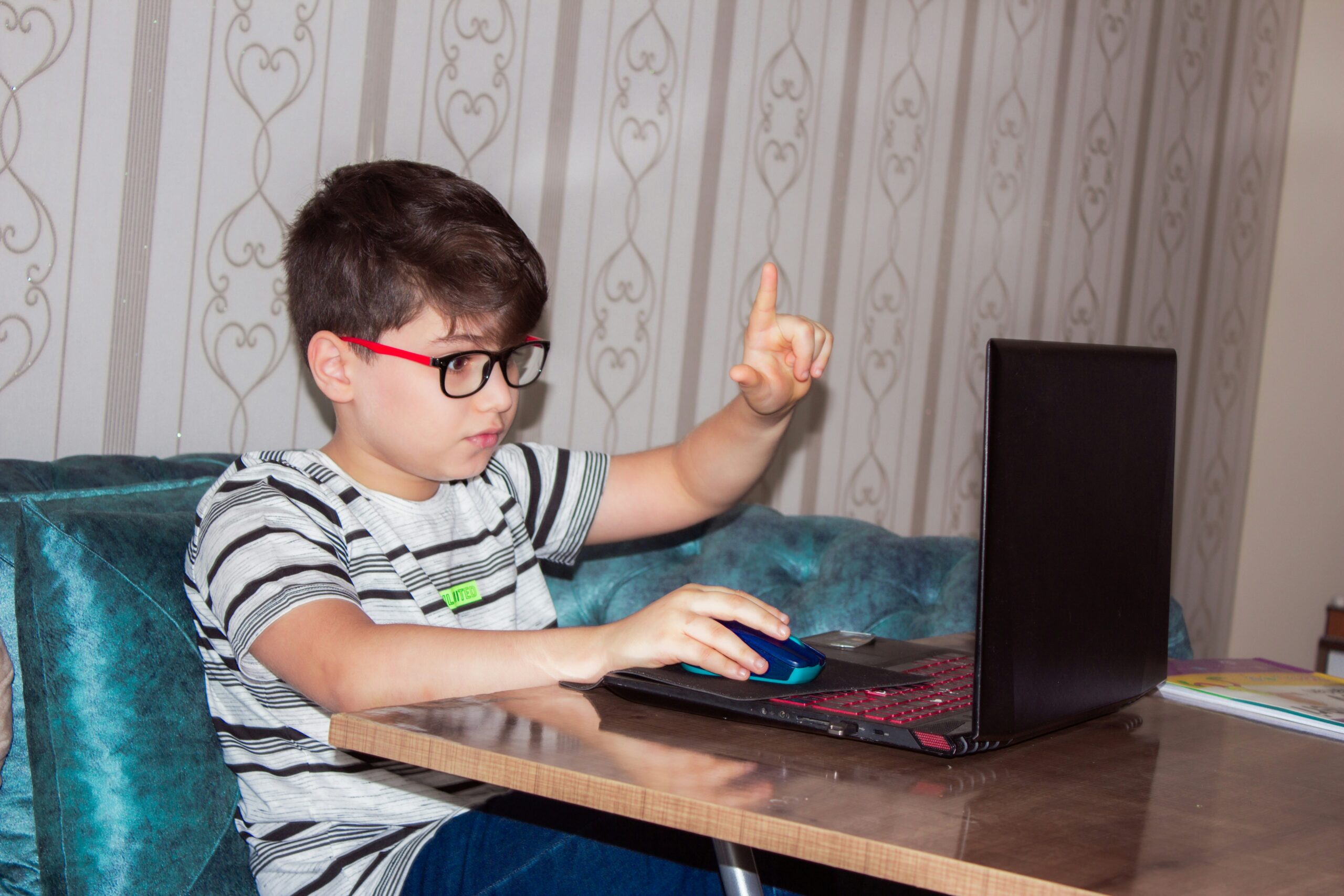With the omnipresence of screens and the risks of overexposing their children to them, many parents have questions about their children's use of these technologies. Warnings and recommendations are regularly issued to help them navigate the murky waters of digital technology. The aim of this article is also to advise parents on how to effectively manage the use of screens and the content to which their young children are exposed.
The effects of screens on young children
Ambivalent effects
Early exposure to screens has both positive and negative effects on children. Denis Fougère points out in his study, "Is the earlier the better? The effects of early childhood care and stimulation on cognitive and non-cognitive development". REF [^1^], that qualitative interactions, including those facilitated by screens, contribute to the cognitive and non-cognitive development of toddlers. However, the emphasis must be on the quality and relevance of content, and on moderating screen time.
Impact of screen exposure on social interaction
The COVID-19 pandemic has highlighted the challenges of increasing digital media exposure in young children. Neil Chanchlani, Francine Buchanan and Peter Gill, in their article "The indirect effects of COVID-19 on the health of children and young people". REF [^2^], discuss the potential consequences of this increased exposure, particularly on the social interactions and emotional development of offspring.
Tips for limiting screen time
It's essential to limit children's exposure time. Catherine Collombet, in her study on "Les inégalités sociales d'accès aux modes d'accueil des jeunes enfants. A European comparison" REF [^3^], highlights the importance of equitable access to quality educational content, suggesting that parents play an active role in choosing content for their children.
Recommendations for toddlers' use of screens
Current recommendations suggest screen-free activities, especially for babies under 2. It is also recommended to limit this exposure for older children, by choosing educational and interactive content.
Content adapted for young children
Content adapted to the child's age and development must take precedence. Educational applications and programs designed specifically for young children are beneficial if used in moderation and under adult supervision.
Recommended educational applications for young children
There are many educational applications available that promote learning and skill development in young children. Parents should look for software that encourages interaction, creativity and reflection, rather than passive consumption of programs.
The role of parents in choosing digital content
Parents have a key role to play in choosing digital programming for their children. They must ensure that these are not only educational, but also age-appropriate and aligned with their family values.
How screens can influence children's development
Exposure to screens can significantly influence the cognitive, emotional and social development of young children. Parents need to be aware of the potential impact of these media, and strive to provide a balanced environment where off-screen activities are valued.
Using screens for academic purposes
Connected devices are a valuable tool in the academic world. Indeed, they offer opportunities for interactive and engaging learning. However, their use needs to be carefully planned and integrated into a broader educational framework.
The role of screens in schooling
As screens are increasingly integrated into schooling, it's important to maintain a balance between digital learning and traditional teaching methods. This harmonization ensures the holistic development of children and teenagers. According to a Médiamétrie report published in 2017, young people in France devote more hours annually to screens than to formal education: they spend 1,200 hours in front of screens compared with 900 hours in a school setting.
Digital education vs. traditional teaching
Digital education offers new learning opportunities, but should not entirely replace traditional teaching. Face-to-face interaction and hands-on experience remain fundamental to a child's development.
Best practices for children's healthy use of screens
To ensure healthy use of connected devices, parents need to set clear limits, encourage regular breaks and promote enriching alternative activities for the good growth and well-being of little ones.
Alternative activities to screen use for children under 2 years of age
For children under 2, adults should focus on activities that stimulate human interaction and sensory development. These can include reading, board games and outdoor activities.
The impact of screen use during mealtime on children
The use of screens at the dinner table risks hindering family communication and healthy eating habits. Meals should be privileged moments for family exchange and sharing, without digital distraction.
Video games suitable for young children for limited use only
Choosing age-appropriate, time-limited video games can be an enriching activity for children, provided they are integrated into a wider range of activities. They should make a positive contribution to the child's development, encouraging problem-solving, creativity and teamwork, for example.
The role of parents in managing video games
Parents must also ensure that time spent on these games does not substitute for essential growth activities such as direct social interaction, physical play and outdoor activities.
In conclusion
In good practice, screens should be at the service of intelligence. Modern parents and educators now have a duty to teach children to use these technologies intelligently. Managing young children's screen time, usage and content are practical ways of achieving this goal. They also need to enrich their learning environment with a variety of activities for their well-being.
Disclaimer
This article is based on research and studies available up to April 2023. Parents are encouraged to consult health and education professionals for advice tailored to their personal situation.
References
REF [^1^]. Fougère, D. (Publication date not specified). Is the earlier the better? Les effets des dispositifs d'accueil et d'éveil des jeunes enfants sur leur développement cognitif et non cognitif. DOI
REF [^2^]. Chanchlani, N., Buchanan, F., & Gill, P. (2021). Indirect effects of COVID-19 on the health of children and youth. DOI
REF [^3^]. Collombet, C. (Publication date not specified). Les inégalités sociales d'accès aux modes d'accueil des jeunes enfants. A European comparison. DOI
